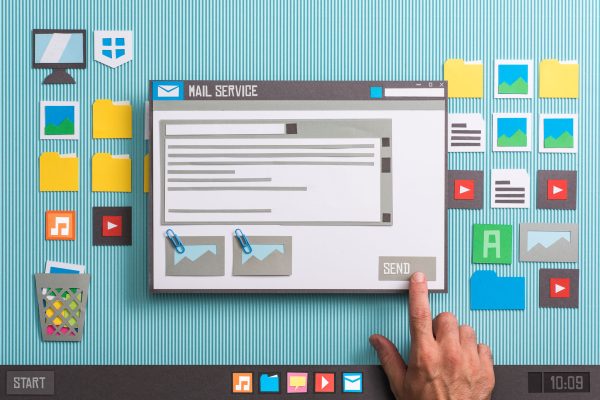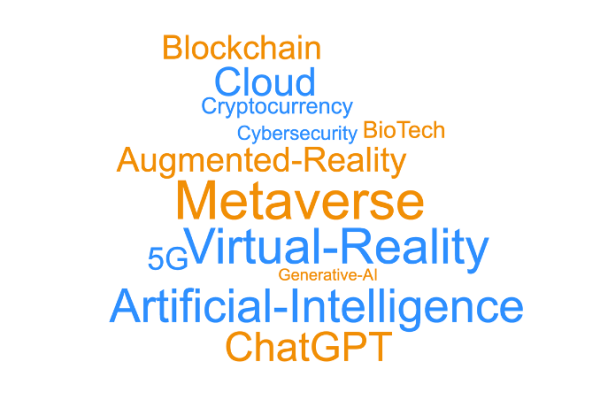Welcome to the Metaverse

Note: Electronic Office is committed to being more than just the best IT solutions provider. We seek to be the trusted technology advisor that our clients engage strategically. That level of partnership generates far-reaching conversations including topics in the news like the metaverse and cryptocurrency. In the spirit of those conversations, EO Advisor will be delving into these topics in 2022.
Do you know Lil Miquela?
Her Wikipedia article describes her as Miquela Souza from Los Angeles who is a singer, Instagram personality, and digital art model.
Miquela started on Instagram in 2016 with the goal of becoming a commercially successful influencer. She’s done well. Today she has 3 million followers just on TikTok and she promotes top fashion brands including Calvin Klein and Prada across multiple social media platforms.
Even with all of this success, Miquela does not pay any income tax because “she” is a meta-generated robot (though presumably her creator Brud does) and Miquela has never hidden this fact from her legions of real-life followers.
Lil Miquela is a computer program leveraging massive amounts of data about successful influencers in order to generate a successful influencer. Using influencer data to create an influencer is about as meta as you can get.
Welcome to the Metaverse
To cover the basic term, meta means “self-referential.” “Metadata” is data about data and we often experience metadata in the form of hashtags.
Many of the pictures and memes on social media contain hashtags like “#asheville” or “#blueridgemountains” or “#snowstorm.” The hashtags cause the pictures to show up in searches that use the words that have been tagged. The picture is the data, the hashtag is data about data. The hashtag is meta.
In 1992, Neal Stephenson wrote, “Snow Crash” where he invented the word “Metaverse” for his sci-fi novel but our use of the term has evolved a lot. Today, the term metaverse refers to a world where metadata enhances our experiences in powerful and profound ways because it happens in real-time.
Why Facebook Changed Its Name
The huge social media platform will continue to be called Facebook but it is now a subsidiary of a corporation called Meta Platforms, Inc.
Like him or not, Mark Zuckerberg’s imagination seems to have consistently anticipated what’s coming next as computing becomes faster, cheaper, and more ubiquitous.
The next leap forward for the intersection of computer science and human behavior is the always-on, always-connected, always lightning-fast Internet that can integrate our real-life activities with digital enhancements in real-time.
Referencing what we are experiencing in real-time in order to generate virtual content that enhances that experience instantly is self-referential computing – it’s meta. That’s why the old Facebook is now the new Meta.
The metaverse has two components; virtual reality (VR) and augmented reality (AR).
Virtual reality (VR) is video games on steroids. Put on a headset and suddenly you can play tennis against Billie Jean King – the experience is so intense that your brain starts to think that this is what you are really doing. Building property inside real-estate games is becoming more robust as well. Buying virtual land in a virtual city where real people roleplay as virtual versions of themselves – that’s VR.

Decentraland is a virtual world where people are already spending real dollars to buy virtual real estate.
Augmented reality (AR) uses metadata to enhance our real-life experiences in real-time. Robotic surgery is performed by a real surgeon looking at a huge video monitor to guide the surgical arms of a machine. It’s real-time and it’s a real surgical team but the team has super-human skills thanks to AR.

INTUITIVE is an industry leader for robotic surgery machines.
VR has very cool implications for the future of gameplay. Microsoft just committed to buying Activision for $69 billion because they are anticipating the demands for VR quality games that will unfold over the next decade. The race between Facebook (Meta) and other tech giants is now officially started.
VR might grab more headlines but AR is what we’ll be talking about in this series and beyond because AR is coming into our everyday lives and into our businesses sooner than we might think.
It’s likely that you’re already experiencing the metaverse even if you are not a gamer.
Have you ever worn a heart rate monitor while exercising – that monitor uses data to enhance your workout in real-time. Real-time health monitoring as part of our everyday lives is augmented reality and it’s about to grow a lot.
If you are using Waze, your driving decisions are being improved with real-time data. If you are using a backup camera to parallel park, your vision is being enhanced in real-time. AR is making driving safer and easier already. We’ve just scratched the surface for the ways that AR is about to change how we drive.
Welcome to the metaverse, you are already living in it.
Future articles on this topic will dive deeper into the metaverse with an eye towards implications for the near future. Please, if you have ideas or questions for future articles, let us know what’s on your mind.



